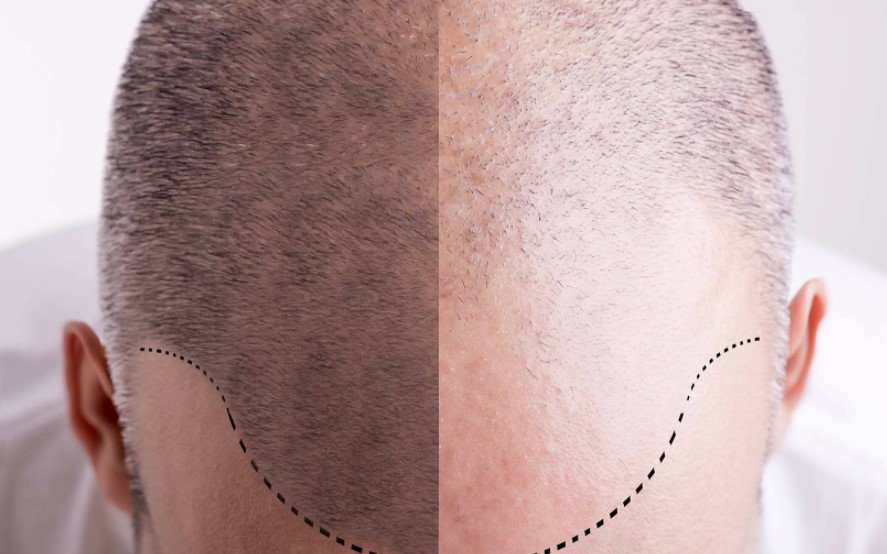
Girls undergoing chemotherapy are having their bald heads ornately adorned with temporary tattoos, a novel treatment dubbed as ‘henna crowns’ has recently made the news. However, several practitioners are also offering ‘hair tattoos,’ which are designed to make a permanent and long-lasting statement on otherwise bald heads.
“Cosmetic Transdermal Hair Replication,” “Cosmetic Hair Follicle Replication,” “micro hair method,” and “Scalp Micropigmentation” are all terms used to describe hair tattoos. Whatever the term, the concept is the same: patients get their heads tattooed fully to produce the appearance of individual hair strands.
What are the disadvantages?
These hair tattoos appear to offer a technique to reproduce missing hair without having to wear a wig or otherwise concealing bald patches for men and women who are experiencing hair loss. However, like with any tattoo, there are many factors to consider before deciding to have one.
A tattoo is permanent.
Hair tattoos, like tattoos on the arm, chest, back, or leg, are permanent. Although lasers can remove tattoos quite accurately, the procedure is costly and can result in scars.
Traditional tattooing methods are no longer sufficient.
The inks and needles used in body art are no longer generally pleasant enough to accurately resemble hair strands. Traditional inks are likewise prone to fading; consider how many once-black tattoos have turned green!
Hair that has been tattooed does not grow.
Tattooed hair does a good job at imitating very short, stubby hair, but that’s about all it can do. Men and women who want to get a practical style should keep their real hair as short as possible. As a result, women who do not want a ‘buzz cut’ should avoid tattooed hair.
Tattoos, on the other hand, will never allow sufferer to run their fingers through their hair. There is no longer a method to achieve real hair without regrowing it.
What other options do you have?
Although tattooed hair may suit some men and women, the majority would prefer the option of regrowing their hair, which tattoos do not provide. Fortunately, reliable alternatives exist that allow for genuine hair restoration without the risks and limitations of tattoos.
Propecia
Propecia has been clinically proven to increase hair regrowth and has been approved by both the FDA in the United States and the MHRA in the United Kingdom. Propecia has been administered to men as part of their hair loss treatment strategy for more than two decades, particularly if the loss is thought to be caused by genetic factors.
Minoxidil
Minoxidil is suitable for both men and women and can form the backbone of a treatment plan, though, for more difficult cases of hair loss, clients can be given bespoke formulations including different substances such as Azelaic Acid. The MHRA has approved minoxidil for usage in both men and women.
Finally, men and women who are experiencing hair loss can choose between starting a medicine regimen that will help genuine hair regrow naturally or getting tattoos that look like hair but have added benefits.